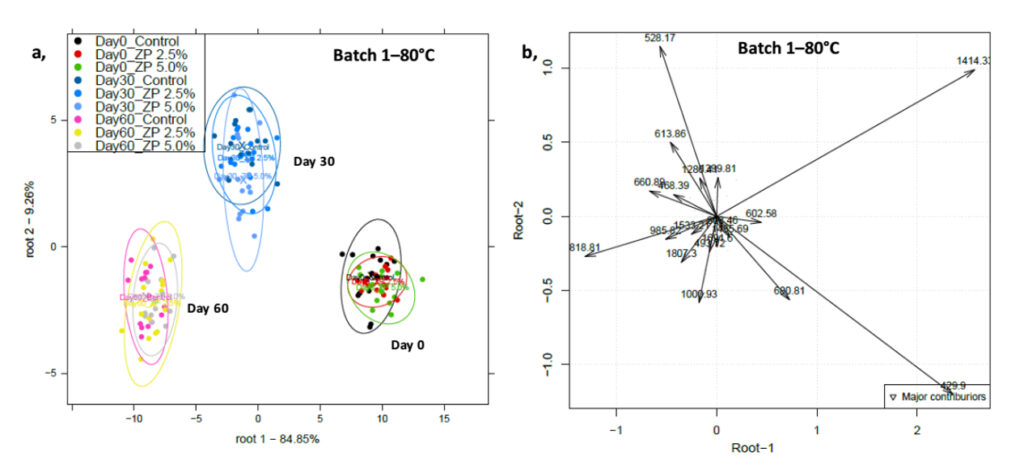As a member of an international consortium, ADEXGO Kft. with the Hungarian University of Agriculture and Life Sciences, and the Romanian companies Avicola Lumina and Pharmacorp Innovation, participated in a three-year EUREKA project, the partial results of which were published in the journal Chemosensors with the co-authorship of our staff. Examination of egg quality by a number of methods revealed that the feed supplement based on the brewery by-product developed under the project did not significantly change the organoleptic characteristics of the eggs produced.
Evaluating the effect of a brewery by-product as feed supplementation on the quality of eggs by means of a human panel and e-tongue and e-nose analysis
Juan Pablo Aguinaga Bósquez, Zoltan Kovacs, Zoltán Gillay, György Bázár, Csaba Palkó, Hajnalka Hingyi, Éva Csavajda, Márta Üveges, Zsuzsanna Jókainé Szatura, Iuliana Diana Barbulescu, Mihaela Begea, Tamás Tóth
The objective of our research was to evaluate the possible alteration of the organoleptic properties of eggs produced by hens (Lohmann Brown-Classic) fed with diets containing different doses of an industrial by-product enriched with organic zinc (Zincoppyeast, ZP): Control 0%, ZP 2.5%, and ZP 5.0%. Eggs were collected after 30 days (batch 1) and 60 days (batch 2) of feeding with the experimental diets and subjected to chemical, microbiological, human sensory, e-nose, and e-tongue analyses. There was no significant difference among the microbiological status of eggs of the three groups, but there were significant differences (p < 0.05) in the fat (9.5% vs. 9.3%) and protein contents (12.7% vs. 13.4%) of the Control and ZP 5.0% groups, respectively. Human sensory analysis showed no clear change in the organoleptic characteristics of the eggs. Using linear discriminant analysis (LDA), the e-tongue could recognize the three groups of eggs in batch 1 and batch 2 with 95.9% and 100% accuracy and had a prediction accuracy of 64.8% and 56.2%, respectively. When the eggs were incubating at 50 °C or 80 °C before the e-nose analysis, the groups of eggs could be recognized with 98.0% and 82.7% accuracy, and predicted with 68.5% and 62.2% accuracy, respectively, using principal component analysis-based discriminant analysis (PCA–DA). The aroma compounds and respective sensory descriptors showing changes among the different groups of eggs (batch, storage, and feeding) were identified based on the e-nose analysis. The supplementation of laying hens’ feed with the investigated industrial by-product can be applied without any substantial effect on egg quality, which can, however, be detected with advanced analytical methods.

Access the full paper free of charge on the website of the journal:
